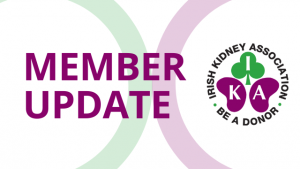‘Between Stimulus and Response there is a space. In that space is our power to choose our response. In our response lies our growth and our freedom’
Dr Viktor E. Frankl
Man’s Search for Meaning
We are certainly in a time where choosing our response may be a great challenge to us all. As the number of cases of Coronavirus continues to rise and further restrictions are put into place in an effort to slow down the spread it is only natural for our levels of fear, stress and anxiety to intensify. The proposed implementation for several weeks of self-isolation for the elderly and those with long term health conditions may well be a measure that is necessary but is also a measure that may have a damaging effect on people’s mental health.
The World Health Organisation (WHO), HSE and departments of mental health from all around the world have released guidelines to help people cope in these unprecedented times. A crisis like the Coronavirus makes us all acutely aware of just how vulnerable we really are, and the normal coping strategies we rely on may be tested. I have read over a number of these guidelines and compiled a list of some of the key suggestions they make about coping in this very stressful situation:
Stay Connected – In a time when social distancing is recommended it is essential for you to find ways to stay in contact. Buddying up with one or more people you can trust to give you emotional or practical help can be a good source of support. Phone and video calls, texts and emails are all easy ways to stay connected.
Keep things in Perspective – A near constant stream of news reports is bound to unnerve even the most resilient among us, so it’s important to pay attention to your needs and feelings. Be kind to yourself, whatever it is you are feeling, worry, fear, loneliness or anxiety try to turn these emotions into conversations and ask for the support you need. Try not to judge others or make assumptions about who is responsible for the coronavirus spread. Unfortunately, it affects anyone regardless of age, gender, nationality or ethnicity, we are all in this together.
Maintain a sense of Routine – Try as much as possible to keep to your daily personal routines or create new ones. Stay active where you can, engage in nature, vary activities, eat well and keep to your regular sleep patterns.
Set Goals – It is important to keep a structure in your day. Setting up one or two goals each day can help to create this and help you feel a sense of accomplishment and control, which in turn positively impacts your mental health.
Stay informed but set limits for news and social media – Sometimes it’s difficult to separate facts from rumours. If you feel the coverage on coronavirus is too much for you, try to find a balance that allows you stay informed while avoiding rumours and information that make you feel uncomfortable. Having access to trustworthy and reliable sources of information can help and considering limiting how much time you spend on social media will prevent other people’s fears and worries becoming your own.
Prepare a personal safety information pack – The pack may include a summary of basic personal information, available contacts, medical information and list of regular medicines or requirements you may need. Be prepared and know in advance how and where to get help.
The starting point of caring for another is caring for yourself. These may seem like simple and straightforward suggestions but sometimes the smallest change in our awareness can make the biggest difference to our experiences. I wish all our members and their families well during this difficult time and if I can help in anyway please get in touch.
Aoife Smith
IKA Counselling Services – contact aoife@ika.ie.
Helpful links:
- If you need urgent help, Samaritans can be contacted on 116 123 or email jo@samaritans.ie.
- If you want to talk to a professional, many therapists are now doing appointments by phone or conference call. You can continue to contact me here at the Irish Kidney Association and I will arrange it for you. Email: aoife@ika.ie
- Find the latest information from WHO on where COVID-19 is spreading.
- WHO Mental Health Considerations.
- HSE Mental Health advice during COVID-19.
- Mindful walking, breathing and eating for just a couple of minutes several times a day can help with anxiety. The aim of mindfulness is to bring the mind to the present moment – or the process of trying to. Try mindfulness apps such as Calm and Headspace.
- The Anxiety and Depression Association of America has a dedicated link to helpful resources.
- In the UK, the Mental Health Foundation’s section on coronavirusis a helpful resource.




